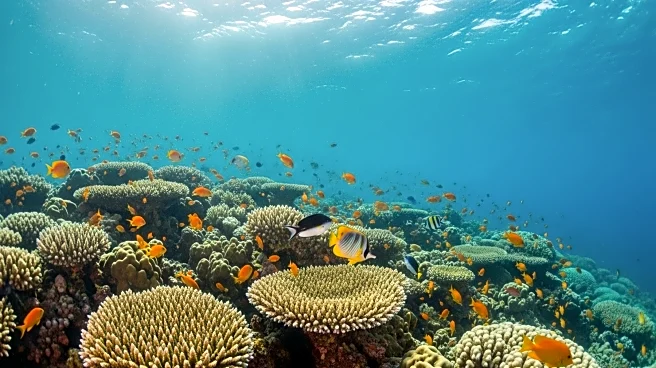What is the story about?
What's Happening?
Recent studies have highlighted the impact of marine heatwaves on the Northeastern subarctic Pacific Ocean, affecting food webs and carbon transport processes. Two significant heatwaves, including the event known as 'The Blob,' have altered temperature anomalies and disrupted ecological balance. These heatwaves have influenced phytoplankton composition and carbon export, with implications for marine biodiversity and climate change. The research utilized data from BGC-Argo floats and satellite observations to analyze changes in oceanic conditions and biological activity.
Why It's Important?
Marine heatwaves pose a threat to ocean ecosystems, affecting species distribution, nutrient cycles, and carbon sequestration. The findings underscore the vulnerability of marine environments to climate variability and the need for comprehensive monitoring and adaptive management strategies. Understanding these impacts is crucial for predicting future ecological shifts and informing conservation efforts. The study contributes to broader climate change research, highlighting the interconnectedness of oceanic processes and global climate systems.
Beyond the Headlines
The research may influence policy decisions regarding marine conservation and climate adaptation strategies. It highlights the importance of international collaboration in addressing climate-related challenges and preserving marine biodiversity. The study also emphasizes the role of advanced technologies, such as BGC-Argo floats, in enhancing scientific understanding of ocean dynamics.

















